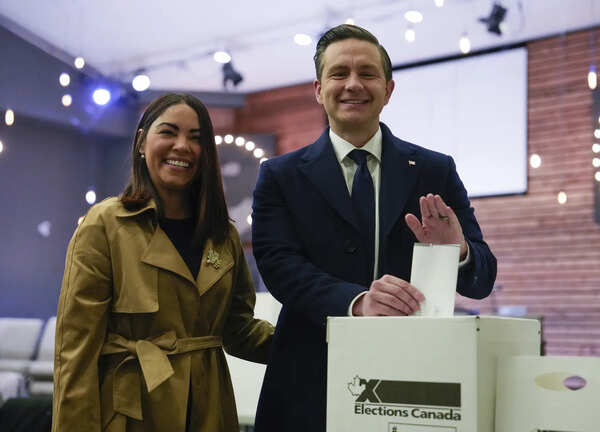Some had anticipated a political earthquake at the American national election of 2025: Mark Carney’s Liberal Party won an implausible fourth consecutive term, which was held on April 28. It was a clear mission against democracy, outside intervention, and political volatility even though they were unable to win a lot and only managed to win roughly 168 votes in the expanded 343-seat House of Commons.
The Bloc Québécois dropped to about 23 seats, while the Conservatives came in second place, and the New Democratic Party ( NDP ) was slowed to just 7 seats. Voter turnout rose, mainly due to concerns over American sovereignty and an exceptionally strong emphasis on domestic cohesion in the face of global uncertainty.
What were the biggest winners and losers of the election that changed the course of politics in Canada:
Winners
1. Mark Carney
Mark Carney’s move from the position of central banker to national leader was first seen as a top rescue mission. He rather aided the Democrats in winning a resolute election by tapping nationalist sentiments in response to controversial remarks made about Canada by US President Donald Trump. The citizens applauded Carney for positioning himself as a calm, critical remedy to panic.
2. Christine Freeland
Chrystia Freeland served as the campaign’s designer if Mark Carney had been its face. Freeland’s behind-the-scenes work as Deputy Prime Minister and master tactician protected the Liberals ‘ Atlantic and industrial heartlands and ensured a smooth move from the Trudeau time. Her potential for the best position has now reached its height, making her a potential leading candidate.
3. The Democratic Atlantic System
The Democrats in Atlantic Canada served as a reminder of how traditional politicians should be. Nova Scotia, Newfoundland and Labrador, New Brunswick, and Prince Edward Island all experienced a near-seasonal blow as a result of earth game, dedicated systems, and localized fighting. It was a textbook example of political body memory.
4. American Vote Turnout
One of the highest voting in recent years was witnessed during the election. Canadians turned out in record numbers, which was fueled by concerns about foreign influence, financial security, and national unity. Usually reserved in their social engagement. For once, politics was no longer merely a tradition but a protest.
5. Urban Libertarianism
The Democrats ‘ lock on Canada’s big cities has now been eliminated if there was any doubt about it. Toronto, Montreal, and Vancouver all continued to paint themselves Democratic red, furthering the party’s position in the region’s urban-rural divide and providing a crucial shield from Conservative advances somewhere.
Losers

On April 28, 2025, Conservative Leader Pierre Poilievre, left, and his family Anaida Poilievre cast their ballots in Ottawa, Canada. ( Adrian Wyld/The Canadian Press via AP )
6. Pierre Poilievre
It was a catastrophe for Pierre Poilievre. He was billed as the Conservatives ‘ savior, but instead he turned into its cautionary tale, failing to win both his own chair and a lot, making him the party’s failure. The very residential electors Conservatives needed to win were alienated by his company of American-style conservatism, strong language, and free-market absolutism.
7. Jagmeet Singh
Jagmeet Singh’s once-dazzling sun lost a lot of its brightness. As progressive voters rallied to stop a Liberal government, the NDP lost support as the party lost just 7 chairs nationwide. Even worse, Singh lost his seat, which sparked concerns about his upcoming leadership.
8. Québécois union
The Bloc Québécois found themselves discussing the wrong type of independence in a year when everyone was talking about it. Citizens in Quebec were turned down because they were more concerned with national security than freedom dreams. The action that again shook Ottawa appeared to have lost its voice as a result of the Bloc’s seat count dramatically declining.
9. Karlistani Advocacy Groups
Some Khalistani advocacy organizations previously managed to have some influence on certain sections of the Indo-Canadian population, especially during the troubled 1980s and 1990s. The voter overwhelmingly chose mainstream social platforms over extreme separatist agendas because of a strong emphasis on economic stability, diverse integration, and strengthened diplomatic relations with India. In a French social environment where unity and rational leadership are then valued, modern public mood, supported by strong law enforcement and parliamentary initiatives against violent extremism, has marginalized Khalistani-linked efforts.
10. Donald Trump
Although Donald Trump was not a candidate, a significant darkness loomed over him. Nationalists were stoked by his rash remarks about Canada’s extreme tariff policies and designation as the “51st National state.” Canadian voters backed leaders who pledged to defend their independence, essentially making Trump a dishonest campaigner.




